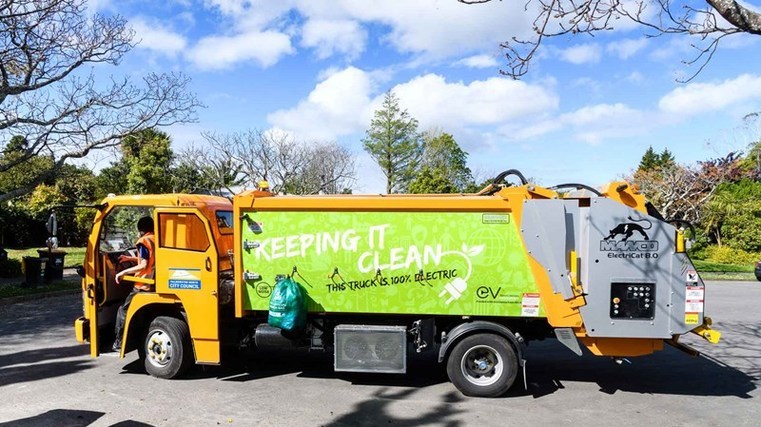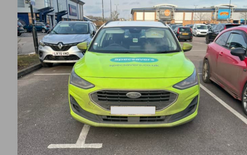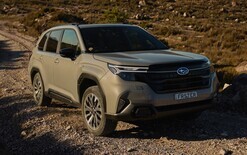First electric rubbish truck
Wellington's first fully electric rubbish truck - the Manco Sea EV10 Electricat - was revealed at a ceremony at the Council’s Berkley Dallard apartments on June 12.
This truck is the first of its kind in the city and was purchased with the help of an Energy Efficiency and Conservation Authority (EECA) grant for contractor Professional Property & Cleaning Services (PPCS).
It joins two electric vans the company introduced in 2018, and will service 40 of Wellington City Council’s social housing sites.
“We see this new truck as a major step towards our target of converting 70 per cent of our fleet to electric or hybrid by 2025,” says Sarel Bloem, PPCS general manager.
“We’re a family-owned New Zealand company and we’re passionate about protecting the environment. That’s why we bought this truck and why we’ve just ordered an additional six electric vehicles. This means in the next few months 100 per cent of the vehicles we use to service Wellington will be electric.”
“We’ve been installing electric vehicle chargers in the city for residents to use but we need to lead by example,” says mayor Justin Lester.
“That’s why we’re converting our own fleet to electric, and I’m delighted that PPCS are joining us in this. This is about making our city cleaner for us and future generations.”
Councillor David Lee, who holds the climate change portfolio, says Wellington is continuing the journey to becoming a zero-carbon capital by 2050.
“We will only get there with help from companies like PPCS getting on board. I’d encourage other companies with large fleets to do the same.”
Climate Change minister James Shaw says it is important for New Zealand’s service fleet to convert to electric vehicles.
“Unlike private vehicles, rubbish trucks, taxis and delivery vehicles are on the road most of the working day. The more of them that are electric, the quicker we will be able to reach our emission reducing goals.”






